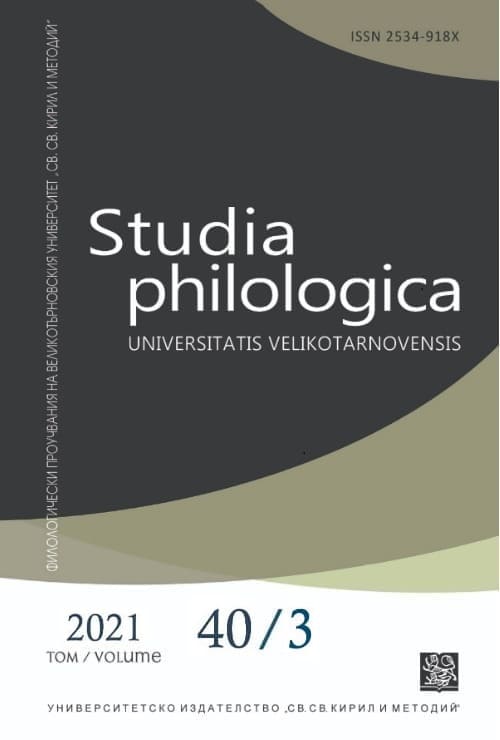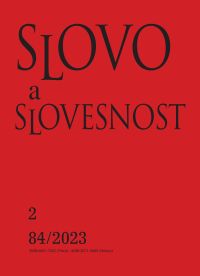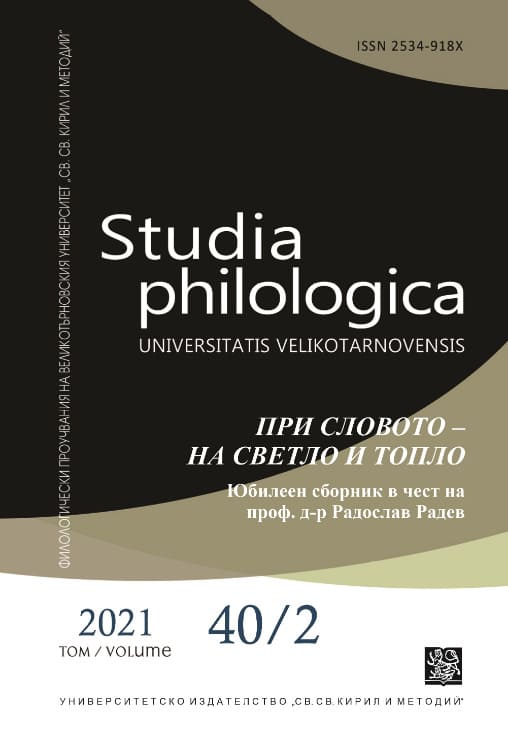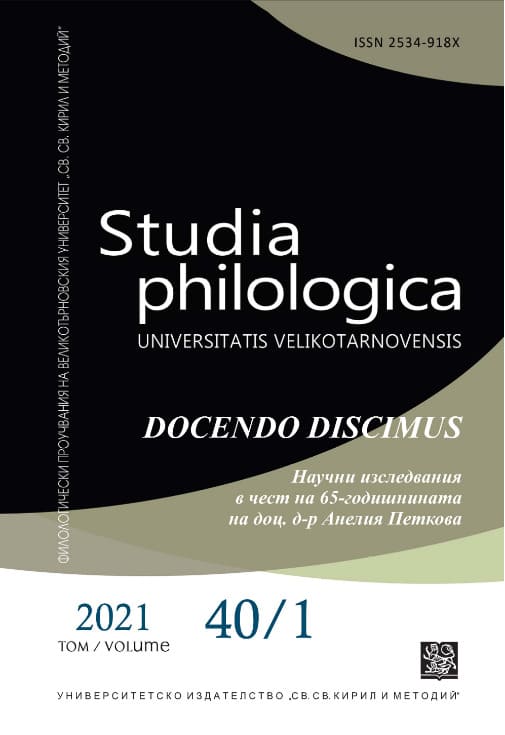
Personal Names in Bulgarian, Serbian, Croatian, and Slovenian Anthroponymic Systems, Derived from a Latin Name that Denotes a Plant or an Animal
The research object of the present text is Bulgarian, Serbian, Croatian, and Slovenian personal names, derived from a name, which is Latin by origin, that denotes a plant or an animal. The main aim is to present their full list as well as their initial meaning. Specialized anthroponymic dictionaries are used as the main source of information for excerpting the researched anthroponyms. All of them contain information not only about the different name forms, but also about their etymology, origin, and canonization. The researched anthroponyms are divided into three major groups according to: 1) the meaning of the appellative (i. e. a thematic classification); 2) the type of the basic word (i. e. if the researched anthroponym is derived directly from an appellative or via another anthroponym (in this case a Roman gentile name or a Neolatin name)); 3) their canonization.
More...


